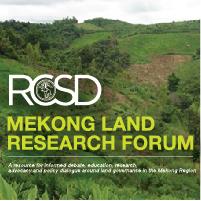Resource information
As a global phenomenon, land grabbing has significant economic, environmental, and social impacts, often resulting in serious conflict between the local community and outsiders. The aim of the study is to get a deeper understanding of the extent to which land grabbing and resulting land-use conflicts affect the move towards sustainable forest management (SFM) in Cambodia. Two case studies were conducted involving community forests (CFs), with data collected through literature review, key informant interviews, focus group discussions, and field observations. The results indicate that land grabbing in Cambodia, particularly through economic land concessions (ELCs), is often associated with conflict and thus has serious implications for sustainable land management, including SFM. Ambiguous property rights and overlapping claims, lack of coordination among government agencies, and lack of consultation and impact assessment prior to the decision-making process are the underlying causes of conflict. The study suggests that the Cambodian government should revisit the policy on ELC to ensure the policy goes hand in hand with sustainable land management objectives, including SFM. Additionally, the study underlines the importance of consultation and environmental and social impact assessment before the granting of an ELC license and the provision of capacity-development activities for conflict management. Finally, further research is needed to carefully evaluate ELCs and their role in SFM in order to gain deeper understanding of the impacts and to evaluate the strengths and weaknesses of ELCs within the context of the goal of SFM.


